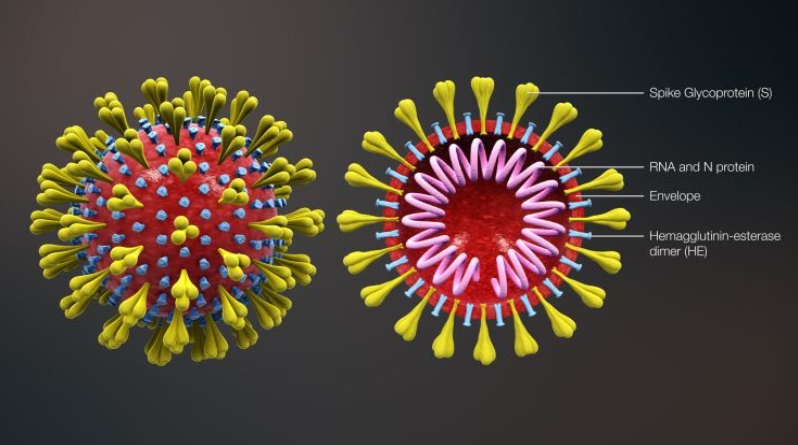The COVID-19 Vaccination Simplified and Questions Answered
With mid-January around the corner, almost 9.5 million doses of the COVID-19 vaccination have been administered. For the millions of Americans who have been struggling fiscally and mental for the past 12 months, this is exciting news! With the Pfizer/BioNTech vaccine approved by the FDA (Federal Drug Administration) on December 11, 2020, most of the first round of these doses have been given to healthcare professionals, such as surgeons, doctors, and nurses working on the front lines. Although there is no certainty as to when the general public will be able to acquire the vaccination, it is imperative that we understand some key facts about the vaccine, and what biochemical processes go into the inner workings of the vaccine in our bodies.
Vaccination Basics: Our immune system protects us from a variety of pathogens. But once a pathogen enters our body, our immune system has no choice but to develop what are called antibodies, or specific proteins in our bloodstream that overcome the threat of the invader pathogen. After antibodies have taken over the workings of the immune system, they have a role of minimizing the illness and consequences of the disease to the human body. Vaccines try to recreate this production of antibodies. One unique structural feature of a COVID-19 virus particle is the spike glycoprotein that is attached to the outside layer of the particle which allows it to attach to healthy cells in our bodies. Vaccines from major pharmaceutical companies, such as Pfizer, Moderna, or BioNTech incorporate something called a messenger RNA (mRNA), which sends a message to our healthy cells to increase the production of such spike proteins. In this method, there are no DNA alterations that take place in our genes. Our bodies can then develop antibodies to this protein which can make us up to 95% immune to the protein and virus. However, this isn’t the only way to tell cells to produce their spike proteins; other pharmaceutical companies like Astrazeneca and Johnson-and-Johnson use what they call a “harmless virus” that has the ability to communicate and tell our cells to produce these spike proteins. Another approach by Novazak has been to inject these spike proteins into our bodies, similar to vaccinations for Hepatitis B and the Flu.
But why are there two doses of Pfizer and Moderna Vaccine? By now, you probably know that both the Pfizer and Modern Vaccine require a second injection roughly three and four weeks after the first injection, respectively. Scientists have purposely developed this mechanism so that the first injection prepares your body and immune system, while the second injection increases and strengthens this immune response. During these critical three or four weeks of incubation period, bodily cells work hard to create spike proteins and antibodies for counteraction. According to Pfizer’s released clinical trial data, the first shot was only 25% effective at preventing the virus, while the second shot combined with the first totaled to almost 95% effectiveness.
One common concern that most Americans have is the possibility of the vaccine making them sick with COVID-19. The simple answer is that no, vaccines do not give you the virus itself, as discussed earlier. However, this does not mean that they cannot give you some normal symptoms, such as fever, headache, and body ache. These symptoms tend to last for no more than 48 hours, and if they do they should be considered abnormally serious symptoms.
Is herd immunity within reach sometime in the near future? It is important to realize that the vaccine will not have an overnight effect on American lifestyles; rather, the benefits of the vaccine will only be felt at the local level when almost 75% of the American population has been vaccinated. Due limited clinical trial data on this age group, individuals age 16 and under will not receive any COVID-19 vaccine in the United States. According to Yale Medical School, herd immunity is projected to be achieved in mid-2021.
If someone has recovered from the virus, is it required to get a vaccination? Certainly! While scientists haven’t determined the exact period of time during which a person can develop re-infection, the possibility of re-infection still exists, and recovery from the virus most certainly doesn’t make someone immune.
Will individuals who have received a vaccination still be required to wear masks? Since it is still not completely clear how effective the vaccine will be with the general public, masks should be kept on the face for as long as the CDC recommends. Don’t forget that while a vaccine may prevent you from being ill from the virus, it doesn’t protect the people around you, and so you must take the necessary precautions to protect others from the virus.
Many people in the United States believe that more people will pass away from a negative immune response to the vaccine than a negative response to the actual virus. However, this is simply not true, as the mortality rate of the COVID-19 virus is almost ten times higher than that of the regular seasonal flu.
The American people deserve to know the facts about this virus, and understanding the chemistry behind the vaccination is crucial to educating the public and increasing awareness. The more the public is education, the higher chances of a return to normalcy. To get the latest information on vaccination sign-ups in your state, it is recommended that you visit your state’s website. Here, you can fill out a form that indicates your interest in getting vaccinated for COVID-19. By trusting our medical professionals and scientists around the country, we can turn this fight around and end the public health nightmare that has befallen Americans.


